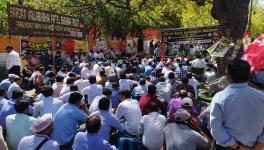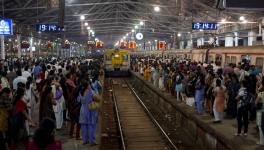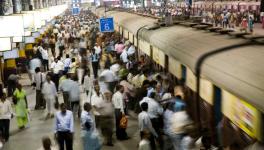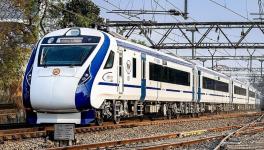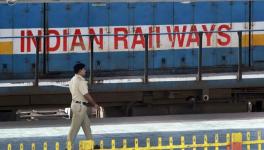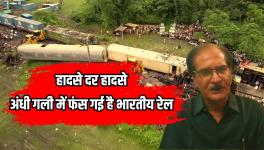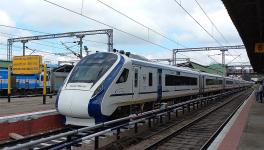Chenab Rail Bridge in Limbo Once Again Over Extra Steel Requirement
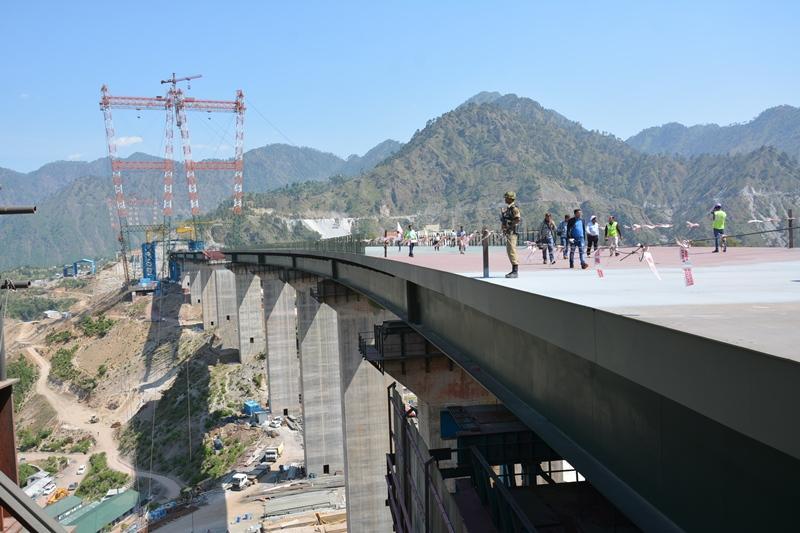
Image Courtesy: The Financial Express
New Delhi: The iconic Chenab bridge will miss the completion target again, fourth time in a row, with the Indian Railways and the contractor engaged in a protracted battle over the issue of 5,000 tonnes of extra steel required and anti-rusting painting as the work has stopped since the past six months.
The stoppage of work on the 1,315-metre-long bridge over river Chenab, the crucial rail path for the Kashmir rail link project, has not only resulted in cost overruns and further delay, it has also created uncertainty over its completion.
The Rs 512 crore project entrusted to the Konkan Railway Corporation Limited (KRCL), a Railways’ public sector undertaking, has already crossed the Rs 1,000 crore mark after missing the target repeatedly since the award of contract on August 24, 2004.
Though work on the 359-metre-high rail bridge is almost over 80% complete now, KRCL developed had serious issues with the contractor involved with the execution of work, such as on the requirement of extra steel and anti-rusting painting.
While Afcons, the contractor, maintains that the demand for 5,000 tonnes extra steel was not part of the contractual obligations, for KRCL, it was very much part of the contract.
The contractor maintains that the contract entails supply of 25,000 tonnes of steel, not 30,000 tonnes, as demanded by KRCL. Besides, the type of anti-rusting paint has also not been finalised yet.
Since construction work on the main arch for the tallest bridge stopped on October 20, 2018, the latest completion target of 2020 is also likely to be missed.
However, Railway Board Member (Engineering), Vishwesh Chaube, said "We have given enough time to the contractor and now we will terminate the contract if the work is not re-started shortly."
When asked whether the termination of contract would further delay the work schedule, Choube said “We will try to meet the target.”
Vijay Sharma, chief administrative officer of the Kashmir rail link project said, "Our aim is to complete the bridge in time so we are in negotiation with the contractor concerned to resolve the issue."
In order to prevent rusting, a certain type of paint needs to be applied to parts of the main arch. This has become a problem, as there is a difference of opinion between the KRCL and the contractor on the quality of the painting.
The Chenab rail bridge has strategic importance for the country as it would facilitate faster movement of goods and security forces.
KRCL Managing Director Sanjay Gupta said keeping the strategic requirement in mind, the contractor should start the work immediately. However, he said he did not agree with the contractor's view that 5,000 tonnes was not part of the contractual obligations. “It was a design and construction contract. How can they say that?” he said.
Construction of the Chenab bridge has proven to be a challenging task. The main arch in the 1.3-km-long bridge is crucial for the project as it entails carrying heavy segments from two ends of the bridge – the Kauri and Bakkal ends – and involves the world’s longest cable crane arrangement.
The bridge is located in the Himalayas and comes with extremely complex, fragile and daunting geological features in the form of faults, folds and thrusts. Detailed site-specific seismic analysis has been carried out by Indian Institute of Technology, Roorkee and Indian Institute of Science, Bangalore.
The Kashmir rail link project, a national project, aims to connect Jammu-Udhampur-Srinagar-Baramulla. While about two-third of the 326-km rail link project is ready, the portion that needs to be completed is a 111-km stretch between Katra, the Hindu pilgrimage town near Jammu, and Banihal on the slopes of the Kashmir valley.
Banihal is connected to Baramulla through Srinagar, while Jammu is linked to Katra through Udhampur. The Katra-Banihal project is considered a tough engineering project as it entails construction of 27 bridges, including the tallest rail bridge in the world, and 37 tunnels, one of which is the longest in Asia.
The Katra-Banihal railway track, which is the only missing link between Jammu-Srinagar-Baramulla railway line, would link Kashmir valley with rest of the country by train.
The writer is a senior journalist and can be contacted at akdas2005@gmail.com).
Get the latest reports & analysis with people's perspective on Protests, movements & deep analytical videos, discussions of the current affairs in your Telegram app. Subscribe to NewsClick's Telegram channel & get Real-Time updates on stories, as they get published on our website.









